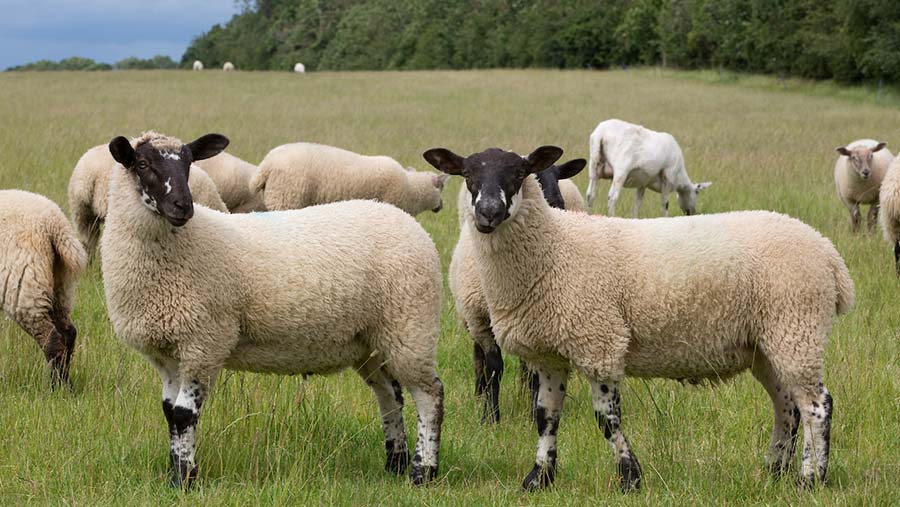Young sheep farmers share tips on year-round lamb marketing
 © Tim Scrivener
© Tim Scrivener Britain’s next generation of sheep farmers are taking the lead in promoting home-grown lamb as a healthy and sustainable choice for shoppers.
These young industry representatives – aptly named “lambassadors” – are aiming to reverse the decline in popularity of lamb among UK consumers ahead of Love Lamb Week next month.
Now in its fourth year, the campaign will focus on shifting opinions of lamb while also giving producers the drive to champion and highlight its sustainability.
See also: How late lambing helps one farmer supply a Co-op contract
“Tradition has conditioned us to buy lamb at Easter and in the spring, with many shoppers probably unaware that the volume of our home-produced lamb increases towards the autumn,” says Phil Stocker, National Sheep Association chief executive.
“It’s a perfect time for our industry to remind people to eat lamb year-round.”
Love Lamb Week runs from 1-7 September and all producers are encouraged to get involved by using the hashtags #LoveLambWeek and #LoveLamb across social media to showcase their farms, themselves and their great British produce.
See also: How to make the most of social media to promote farming
We spoke to three “lambassadors” to get their tips on promoting and marketing British lamb year-round.
Consumer awareness
The consumer-focused campaign aims to increase public awareness of home-grown British lamb and boost sales and consumption.
Kirree Kermode, 32, from the Isle of Man, says farmers also need to bill lamb as a sustainable choice for shoppers.
“I’d like consumers to be aware that when they’re buying lamb, they’re supporting some of our country’s most beautiful countryside.
“I’m proud to help people learn how important lamb is to our environment and our economy, and I’d encourage everyone to get involved with Love Lamb Week.”
With about 60% of UK farmland only suitable to grow grass, 27-year-old Thomas Chapman from Staffordshire say farmers need to promote a clear message around sustainability.
Sheep are a prime way of converting this land into healthy and delicious food, he says.
Lock into lamb
The past 15 years have shown fewer people regularly eating lamb, with those aged 55 years and over making up the lion’s share of the market.
Educating the younger generation is becoming a necessity, says 27-year-old Oxfordshire farmer Lauren Bird.
“It is vital to get lamb back on the menu. We want to make sure that delicious lamb isn’t on its last leg with young consumers.
“Not only is lamb one of the tastiest and most flavoursome sources of protein and iron, it can be cooked in a variety of ways. It is much more than just a Sunday roast or an Easter treat.”
Support your own
Lauren Bird adds that it is fundamental to the industry to help shoppers understand that when buying lamb they are “helping support our countryside”.
“We rely on the support of our customers purchasing British-grown and -reared food in order to maintain the cycle,” she says.
